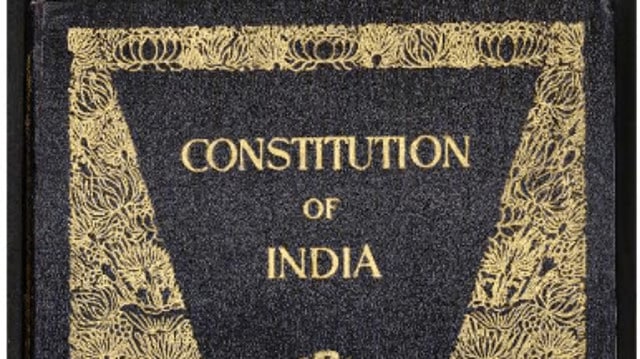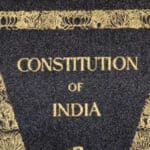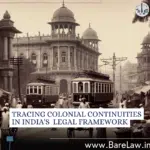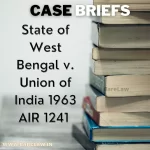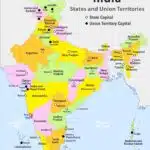The Supreme Court affirmed that the Constitution is a "living document," capable of evolving with changing social and political needs, while upholding the inclusion of these terms as reflective of India's commitment to equality, justice, and secularism. Supreme Court’s Verdict on “Socialist”
The Supreme Court affirmed that the Constitution is a "living document," capable of evolving with changing social and political needs, while upholding the inclusion of these terms as reflective of India's commitment to equality, justice, and secularism. Supreme Court’s Verdict on “Socialist”
Tracing Colonial Continuities in India’s Legal Framework The Indian Constitution, adopted in 1950, indeed drew inspiration from various international sources while also retaining certain laws from the British colonial period. Here are some laws and elements continued or adapted from the British
PRIMARY DETAILS OF THE CASE: Introduction As we know, India is a federal state, but not in the proper sense. That’s why it is referred to as Quasi-federal system. In other words, it is clear that during any emergency situation the union
One of the examples of the Indian Constitution being called a living law is the fact that it changes according to the needs of society. This does not mean the basic essence of what we call the basic structure of the Constitution
Part III Fundamental Rights: Right to Constitutional Remedies Article 32 – Remedies for enforcement of rights conferred by this Part. (1) The right to move the Supreme Court by appropriate proceedings for the enforcement of the rights conferred by this Part is
Part III Fundamental Rights: Cultural and Educational Rights Article 29 – Protection of interests of minorities (1) Any section of the citizens residing in the territory of India or any part thereof having a distinctlanguage, script, or culture of its own shall
Part III Fundamental Rights: Right against Exploitation Article 23 – Prohibition of traffic in human beings and forced labour (1) Traffic in human beings and beggars and other similar forms of forced labour are prohibited and anycontravention of this provision shall be
PART III FUNDAMENTAL RIGHTS Right to Freedom Article 19 – Protection of certain rights regarding freedom of speech, etc. (1) All citizens shall have the right—(a) to freedom of speech and expression;(b) to assemble peaceably and without arms;(c) to form associations or
PART III FUNDAMENTAL RIGHTS Right to Equality Article 14 – Right to Equality The State shall not deny to any person equality before the law or the equal protection of the laws within the territory of India. Article 15 – Prohibition of
PART ITHE UNION AND ITS TERRITORY Article 1 – Name and territory of the Union. (1) India, that is Bharat, shall be a Union of States.[(2) The States and the territories thereof shall be as specified in the First Schedule.](3) The territory
